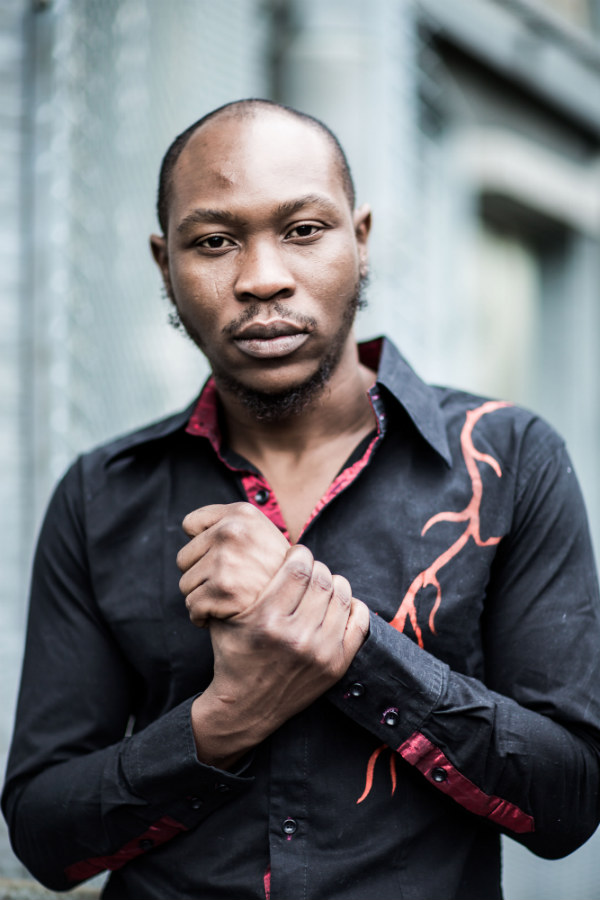“Music can do anything” says Seun Kuti. His eyes flash with a youthful energy, dominating a round face with grizzly scrubs of facial hair.
“Look back at history” he says, “art in general. Governments have always tried to buy artists. Art inspires you. If I was to become really big and win like two or three Grammys, the government would become afraid of me. I wouldn’t be a billionaire; I wouldn’t have an army, but people would listen to me. Art has power.”
Few African artists would understand this better than Seun Kuti. Born into a Yoruba family of unusual cultural and political engagement (writer and Nobel Laureate Wole Soyinka is a relation), the Nigerian 28 year-old’s fate is unique. He’s the youngest son of the legendary founder of Afrobeat music, Fela Kuti, whose reputation as political rebel is virtually without equal in the history of modern African music.
Fela Kuti’s 1977 album Zombie was a scathing attack on the complicity and brutality of Nigerian soldiers working under the country’s military ruler General Olesegun Obasanjo. The release and popularity of the record caused such controversy that Fela’s commune and recording studio, the Kalakuta Republic, was attacked and burned by a thousand soldiers, with several killings and Fela suffering torture.
After his death from AIDS in 1997, more than a million people attended Fela Kuti’s funeral at the site of the Shrine, his old nightclub, which had also been destroyed by the military in the late 1970s. While Afrobeat was a tremendously exciting genre musically, this kind of following came from the way Fela Kuti spoke to, and for, the masses. Fela’s appeal was extraordinary because he voiced the biggest political and social problems that no-one had previously even dared to do, let alone so directly, publicly and emphatically.
Seun Kuti is clearly a proud son. “I’m lucky to come from my father’s sperm, my father’s jingo”; I look up from my notepad and his eyes glint with a mischief that streaks through his conversation. “My father’s ideology was to confront tyranny” he says. “He didn’t believe in using arms, but he did believe in standing your ground.”
Seun is standing his ground across the treacherous political landscapes that blight so many African countries. To him the perfidious role of the ‘international community’ is as aggravating as the corruption that mars national development on the continent.
“Laurent Gbagbo is a tyrant. He needs to go. But Laurent Gbagbo is a product of policy in Africa. He was a government puppet placed there to support the interests of European and US multinationals. He forgot that he should be serving the people. Shell provided boats with which our own people could kill each other.”
“They are all dancing in Africa to tunes being played in the West” he concludes forcefully.
On Obama, he says, “I was a fan. Not now. An African man ordering bomb strikes on African soil? He should be ashamed of himself. Protecting Bengazi from a massacre…” he wrinkles up his face, “Come on, why didn’t they protect Nigerians when our leaders were killing their people? We suffered two genocides…”
Would he choose a career in politics? “I’m already a politician. Not a professional politician. I’d like to create a group of authentic African politicians [reviving Fela’s Movement of the People party has been cited as an idea]. I love my role as a critic” he says.
But isn’t the real challenge in making tough political decisions? “If you have political responsibility for a long time, you get tunnel vision” he responds, adding, “a leader is only as good as his advisers.” His conversation is compelling; insightful, provocative and humorous.
Seun has recognised that he can be more than his father’s son. Since becoming the lead singer of Fela’s old Egypt 80 band at the age of 14 in 1997, he’s embraced his heritage but adapted himself both musically and politically to our times.
His latest album, From Africa With Fury: Rise with Egypt 80, still includes many of the old musicians, and still channels jazz, funk and high-life-inspired Afrobeat music, but has been produced in London with Brian Eno, a production legend in his own right and pioneer of Ambient music. And whereas Fela would mostly rile against military dictatorship, today Seun is attacking multinationals like Monsanto and Halliburton.
Seun’s political diatribe is offset by a lighter exuberance to his personality. Clearly an entertainer in the mold of his father, Seun has a habit of performing half naked on stage with just a sax slung over his neck. We talk about hip hop production in Africa and he feels disappointed by “people promoting bubblegum hip hop” and sneers at “David Guetta on the beats!” adding “but I love it when I’m in a club and I’m drunk, [laughing]”.
If anything, being Fela’s son and part of such a family seems to have taught Seun that he can be anything he wants, and simultaneously be all these different things. Like his father, Seun, I sense, will make people laugh, cry, love and rage all at the same time. Which of course makes him a fascinating and powerful individual, and one well worth listening to.
